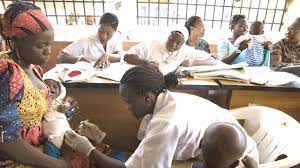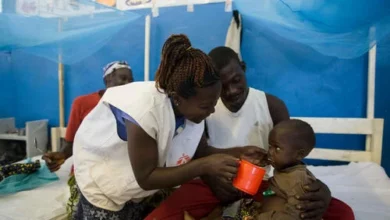
10 Health Challenges in Northern Nigeria
Health Challenges In Northern Nigeria – Health challenges in Northern Nigeria are a serious concern and deserve attention. From inadequate healthcare facilities to a shortage of trained healthcare professionals, the region faces many obstacles when it comes to ensuring the well-being of its residents. Malnutrition and preventable diseases like malaria and diarrhea remain prevalent, and access to essential medical services and supplies is limited for many. The situation is compounded by poverty, cultural beliefs, and a lack of awareness about the importance of preventive health measures.Health Challenges in Northern Nigeria
It’s time we shed light on these issues and work together to find solutions. We need to raise awareness and educate communities about the importance of proper nutrition, hygiene, and preventive health measures. It’s also crucial to support healthcare providers in the region, providing them with the resources and training they need to effectively serve their communities. By coming together and addressing these challenges head-on, we can help ensure a healthier, happier future for everyone in Northern Nigeria.
👉 Relocate to Canada Today!
Live, Study and Work in Canada. No Payment is Required! Hurry Now click here to Apply >> Immigrate to CanadaRead Also: 10 Importance Of Health Education In Nigeria
Overview of the health situation in Northern Nigeria
Health in northern Nigeria is a real concern. The region faces several challenges that impact the health and well-being of its residents. Malnutrition, limited access to healthcare, high maternal and child mortality rates, and the prevalence of infectious diseases are just a few of the problems facing the region. The good news is that these challenges can be addressed with the right strategies in place. The key is to understand the root causes of the problems and work to address them comprehensively and sustainably. By working together and taking a coordinated approach, it’s possible to improve health outcomes in northern Nigeria and ensure that residents have access to the care they need to lead healthy and fulfilling lives. So let’s roll up our sleeves and tackle these challenges head-on!
Importance of addressing health challenges in the region
The health situation in northern Nigeria is a pressing issue that demands immediate attention. The region faces numerous health challenges that have a significant impact on the quality of life for its residents. From malnutrition and undernutrition to limited access to healthcare services and high rates of maternal and child mortality, the situation is dire and needs to be addressed as a matter of urgency.
Failing to tackle these health challenges can lead to a vicious cycle of poverty and illness, hindering economic growth and development in the region. Access to quality healthcare is a basic human right, and ensuring that everyone has access to it is crucial in promoting good health and well-being.
Addressing these health challenges requires a multi-faceted approach that involves collaboration between the government, healthcare providers, non-government organizations, and the local community. By working together, we can make a real difference in the lives of people living in northern Nigeria and improve their overall health and well-being.Information Guide Nigeria
Read Also: 10 Best Islamic University In Nigeria
10 Health Challenges in Northern Nigeria
-
Malnutrition:
The problem of malnutrition is prevalent in Northern Nigeria, especially among children. Lack of access to nutritious food and clean water leads to stunted growth, weakened immune systems, and other health problems.
-
Malaria:
Malaria is a leading cause of death in Northern Nigeria, with a high number of cases reported annually. The lack of proper sanitation facilities and mosquito control measures makes it easy for the disease to spread.
👉 Relocate to Canada Today!
Live, Study and Work in Canada. No Payment is Required! Hurry Now click here to Apply >> Immigrate to Canada-
Maternal Mortality:
Northern Nigeria has one of the highest rates of maternal mortality in the world, with many women dying during childbirth due to a lack of access to proper healthcare facilities and trained medical personnel.
-
Waterborne Diseases:
Lack of access to clean water and proper sanitation facilities leads to the spread of waterborne diseases like cholera, typhoid, and dysentery, putting many communities at risk.
-
Tuberculosis (TB):
TB is a growing concern in Northern Nigeria, with many cases going undiagnosed and untreated. This can lead to the spread of the disease and further health complications.
-
Lassa Fever:
Lassa fever is a highly infectious disease that is common in Northern Nigeria, causing fever, headache, and muscle pain. If left untreated, it can lead to severe complications and even death.
Read Also: 10 Factors Affecting the Pasture Establishment in Nigeria
-
Polio:
Despite being eradicated in most parts of the world, polio is still a concern in Northern Nigeria. Poor immunization coverage, weak health systems, and limited access to healthcare facilities put many children at risk of the disease.
-
HIV/AIDS:
HIV/AIDS is a growing concern in Northern Nigeria, with a high number of cases reported in recent years. Stigma and lack of education surrounding the disease make it difficult to control its spread and provide adequate treatment for those affected.
-
Lack of Healthcare Facilities:
Many communities in Northern Nigeria lack access to proper healthcare facilities, making it difficult for residents to receive medical treatment and care. This can lead to health problems becoming more severe and even result in death.
-
Traditional Medicine:
While traditional medicine can be effective in treating certain health conditions, it can also pose a threat to public health if not practiced safely. The use of unsanitary practices, such as reusing needles, can spread diseases and further compromise public health in Northern Nigeria.
10 Key Challenges Facing Northern Nigeria’s Health System
-
Lack of Access to Quality Healthcare:
The northern region of Nigeria faces a major challenge in terms of access to quality healthcare. Many rural communities do not have access to even basic health facilities, let alone specialized care. This leads to high mortality rates and a general deterioration of health among the population.
-
Shortage of Healthcare Professionals:
Northern Nigeria is plagued by a shortage of healthcare professionals, particularly doctors, nurses, and midwives. This has resulted in a large gap in the availability of adequate medical care, particularly in rural areas.
-
Poor Infrastructure:
The state of infrastructure in northern Nigeria is another major challenge to the provision of adequate healthcare. Many healthcare facilities lack basic amenities like running water and electricity, making it difficult to provide even the most basic of medical services.
Read Also: 10 Factors Affecting Utilization of Maternal Health Services in Nigeria
-
Inadequate Funding:
The government’s allocation of funds towards the healthcare sector in northern Nigeria is inadequate. This has resulted in a lack of resources for healthcare facilities, which in turn affects the quality of care provided to patients.
-
Limited Availability of Medicines:
There is limited availability of medicines in northern Nigeria, particularly in rural areas. This is due to poor supply chains and a lack of government funding. This has led to many patients having to purchase their medicines, which can be unaffordable for many.
-
Cultural and Religious Barriers:
Cultural and religious beliefs often serve as barriers to the adoption of modern medical practices in northern Nigeria. Some communities still hold on to traditional beliefs and practices, making it difficult for healthcare providers to introduce modern medical techniques and treatments.
-
High Rates of Infectious Diseases:
Northern Nigeria is faced with high rates of infectious diseases such as malaria, tuberculosis, and HIV/AIDS. These diseases are often a result of poor living conditions and limited access to healthcare.
-
Maternal and Child Health Issues:
Maternal and child health are major challenges in northern Nigeria. High rates of maternal mortality and infant mortality, as well as low birth weight, malnutrition, and a lack of access to prenatal care, are major concerns in the region.
-
Mental Health Concerns:
Mental health is another significant challenge in northern Nigeria. With limited access to mental health services, many individuals with mental health conditions go untreated, leading to a deterioration in their overall health and well-being.
-
Limited Health Education:
Finally, a lack of health education is another major challenge facing northern Nigeria. Many individuals do not have the knowledge or understanding to make informed decisions about their health, and as a result, they may not seek medical care when they need it.
Read Also: 10 Best Loan Apps in Nigeria Without ATM Card
Conclusion
In conclusion, northern Nigeria faces a range of significant health challenges that must be addressed to improve the health and well-being of its population. Improving access to quality healthcare, increasing the number of healthcare professionals, and addressing cultural and religious barriers are just some of the steps that need to be taken to tackle these challenges and build a more resilient and sustainable healthcare system.
Check JAMB RESULT
Check and Confirm: How much is Dollar to Naira








